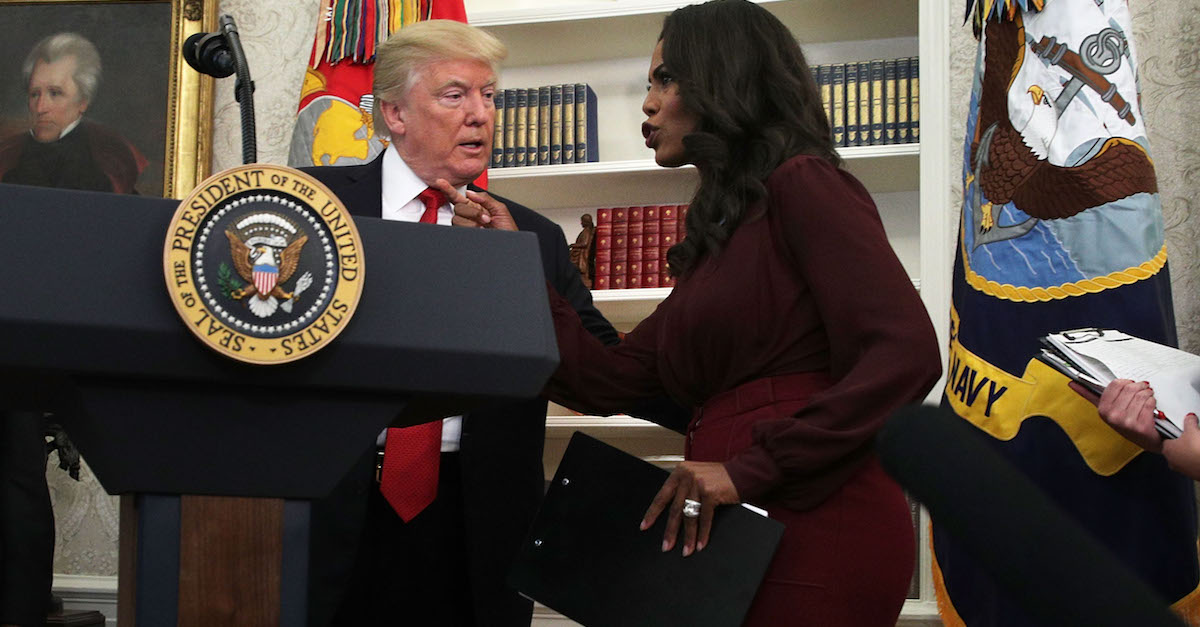
A Daily Beast report on Wednesday revealed that Omarosa Manigault, former Apprentice contestant and ex-adviser to President Donald Trump, secretly recorded conversations she had with Trump. While the news is helping her drum up publicity for her upcoming tell-all book, UNHINGED, it raises the question: could she get in legal trouble for this?
So far, all signs point to no.
According to the Daily Beast report, the conversations took place in the White House. Washington, D.C. law is a “one-party consent” jurisdiction when it comes to recording conversations. That means that at least one person participating in a conversation must consent to the recording for it to be legal. Since Omarosa recorded her own conversations, that would be enough to put her in the clear.
However, there remains a great deal of mystery surrounding these conversations, and if any of them took place in other locations, there could be a problem, depending on where they were. Florida, for example, where Trump has spent a great deal of time during his presidency, is a “two-party consent” state, meaning everyone involved in a conversation must be aware of and give permission for any recording that takes place. If Omarosa and the president were at Trump’s Mar-a-Lago club–also known as his “Winter White House–when she recorded them, that could be problematic for her.
Florida law generally considers first offenses to be misdemeanors, although recordings made for commercial gain (which could be the case here, given her book) can result in felony charges punishable by up to five years in jail. Still, there are exceptions to the two-party consent rule. Recordings that take place in public settings may be permitted because there wouldn’t necessarily be a reasonable expectation of privacy.
[Image via Alex Wong/Getty Images)]
Have a tip we should know? [email protected]